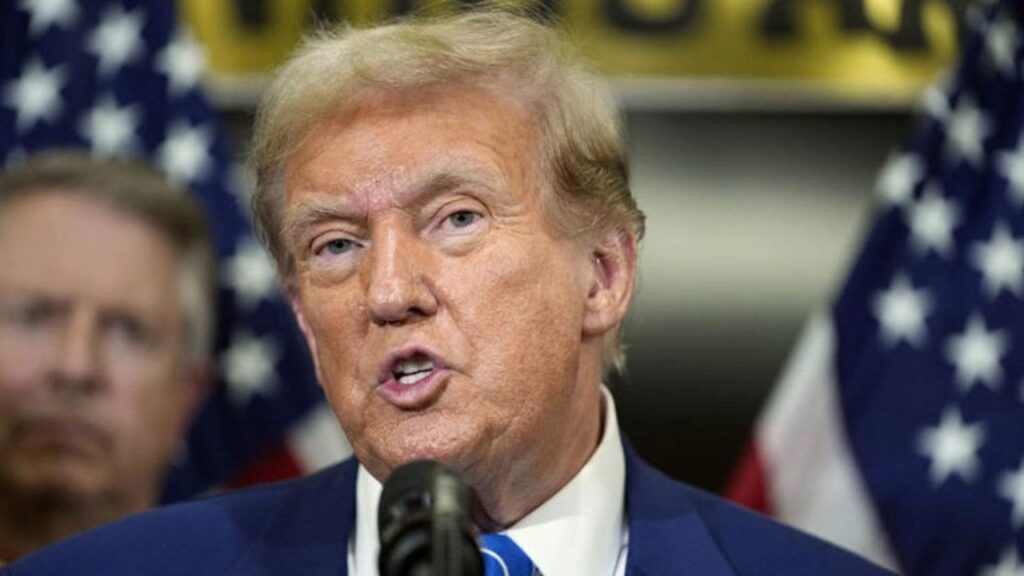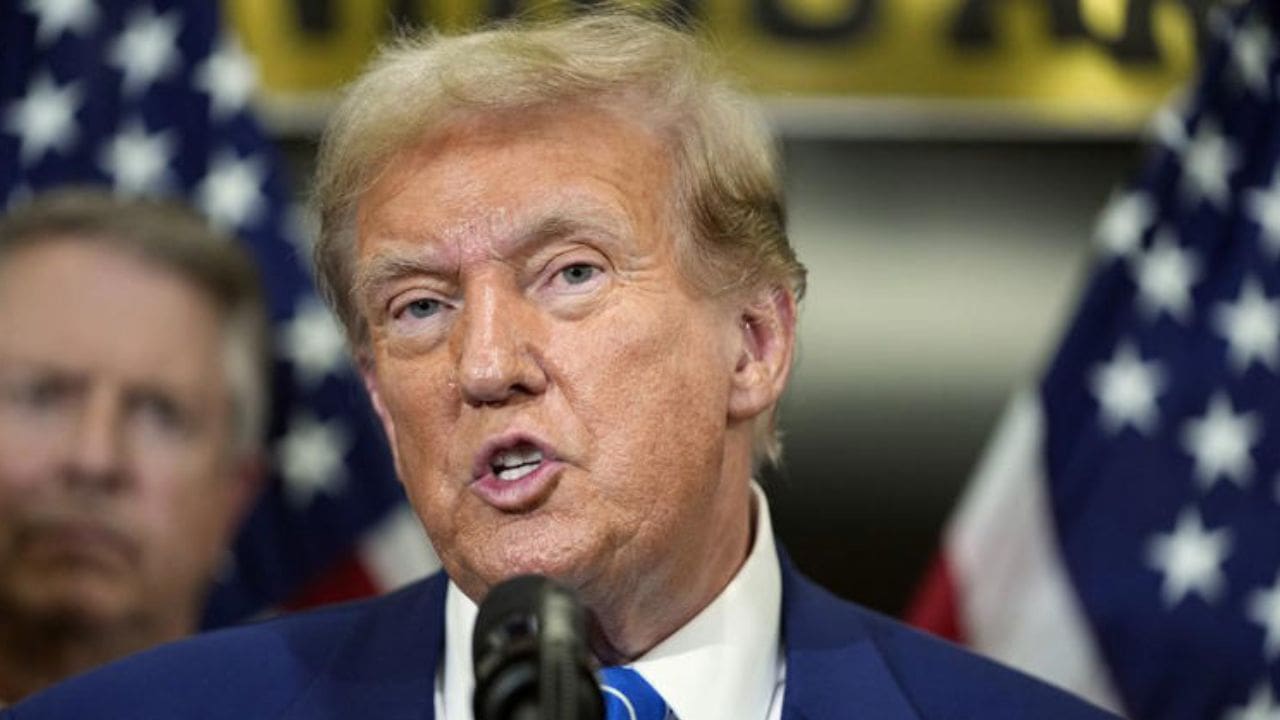Trump AI speechwriting, artificial intelligence, AI deepfakes, technology and security, AI in politics, AI-generated content, ethical implications of AI, speechwriters and AI, future of AI technology, Trump Logan Paul podcast
Former President Donald Trump recently revealed that he used artificial intelligence to rewrite one of his speeches, showcasing both the incredible potential and alarming implications of this rapidly developing technology. During his appearance on Logan Paul’s podcast, Trump discussed the capabilities of AI in creating human-like text and its potential threats, including the creation of deepfakes. This article explores the dual nature of AI, its impact on traditional speechwriting, and the ethical considerations surrounding its use.

Trump’s AI Speech Revelation: A Glimpse into the Future of Technology and its Implications
Former President Donald Trump recently made headlines with a surprising revelation about his use of artificial intelligence (AI) to rewrite one of his speeches. During an appearance on YouTuber and professional wrestler Logan Paul’s podcast, Impaulsive, Trump shared his thoughts on the rapidly advancing technology, describing it as both “alarming” and “incredible.”
The AI Speech Revelation
Trump recounted how the interaction unfolded: “One of the top people, he said, ‘Oh, you’re going to make a speech?’” Trump explained. “He goes click, click, click, and like 15 seconds later, he shows me my speech, written so beautifully. I said, ‘I’m going to use this sucker.’” This incident highlights the speed and efficiency with which AI can generate human-like text, a development that Trump found astonishing.
“It comes out with the most beautiful writing,” Trump added. “So one industry I think that will be gone are these wonderful speechwriters. I’ve never seen anything like it, and so quickly. A matter of literally minutes, it’s done. So it’s a little bit scary.”
The Meeting with Tech Geniuses
Trump’s curiosity about AI didn’t stop there. He revealed that he met with “super geniuses” in the tech industry in San Francisco to discuss the implications and potentials of AI. During this meeting, he was shown a commercial where AI had created a near-perfect imitation of him.
“They made a commercial of me promoting a product, and it wasn’t me, and I said, ‘Did I make that commercial? Did I forget that I made that commercial?’ It is so unbelievable,” the former president said. “The voice was perfect. The lips moved perfectly with every word.”
The Implications for Security
One of the most concerning aspects Trump highlighted was the potential for AI to impersonate people, especially those in positions of power. He illustrated this with a hypothetical scenario: “‘You’ announced that 13 missiles have been sent to … let’s not use the name of a country. We have just sent 13 nuclear missiles heading to somewhere, and they will hit their targets in 12 minutes and 59 seconds,” Trump said. This scenario underscores the dangerous possibilities of AI-generated deepfakes in the realm of international security and diplomacy.
Trump further elaborated on a conversation he had with Tesla CEO Elon Musk regarding this hypothetical. “I asked Elon, is there any way that, like, Russia or China can say that that’s not really President Trump? He said there’s no way,” Trump said. This underscores the potential threat AI poses in creating believable and potentially harmful impersonations that could trigger unintended consequences.
The Dual Nature of AI
Trump’s remarks reflect a broader ambivalence toward AI that is shared by many. On one hand, AI’s capabilities are awe-inspiring and hold the promise of significant advancements in various fields. On the other hand, the potential misuse of AI, particularly in creating realistic deepfakes, poses serious ethical and security concerns.
AI in Speechwriting: The End of an Era?
The revelation that Trump used AI to rewrite a speech has significant implications for the future of speechwriting. Traditionally, speechwriting has been a craft that requires a deep understanding of the speaker’s style, personality, and the nuances of effective communication. AI’s ability to produce high-quality text in seconds challenges this tradition and raises questions about the future of human involvement in creative processes.
While Trump’s experience showcases the potential for efficiency and stylistic quality that AI can bring to speechwriting, it also hints at a future where human speechwriters might become obsolete. This development could lead to a redefinition of roles within the industry, where humans might focus more on overseeing and refining AI-generated content rather than crafting speeches from scratch.
AI and Authenticity: A Double-Edged Sword
Trump’s anecdote about the AI-generated commercial highlights a critical issue with AI: the potential loss of authenticity. As AI becomes more adept at mimicking human behavior and speech, distinguishing between genuine and AI-generated content becomes increasingly challenging. This blurring of lines can have far-reaching implications, particularly in politics and media, where authenticity and trust are paramount.
The ability of AI to create convincing deepfakes, as demonstrated by the commercial featuring Trump, is both impressive and alarming. While the technology can be used for benign purposes, such as entertainment and education, it also opens the door for malicious uses, including misinformation campaigns and identity theft.
Ethical Considerations and the Future of AI
Trump’s comments underscore the urgent need for ethical considerations in the development and deployment of AI technologies. As AI continues to evolve, it is essential to establish guidelines and regulations to prevent misuse and protect individuals’ identities and privacy.
One area that requires immediate attention is the development of technologies to detect and counteract deepfakes. Researchers and tech companies are already working on solutions to identify AI-generated content, but these efforts need to be accelerated and widely implemented to keep pace with advancements in AI.
Moreover, there is a need for public awareness and education about AI and its capabilities. By understanding the potential and limitations of AI, individuals and organizations can make informed decisions and mitigate the risks associated with the technology.
Conclusion
Trump’s revelation about using AI to rewrite a speech and his subsequent reflections on the technology provide a glimpse into the transformative potential of AI. While AI offers remarkable benefits in terms of efficiency and creativity, it also poses significant ethical and security challenges that must be addressed.
As AI continues to advance, it is crucial to strike a balance between leveraging its capabilities and safeguarding against its potential risks. By fostering a collaborative approach between tech developers, policymakers, and the public, we can harness the power of AI for the greater good while mitigating its dangers.
Read More
